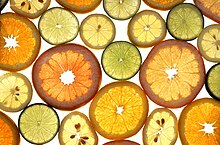LeBrok
Elite member
- Messages
- 10,261
- Reaction score
- 1,617
- Points
- 0
- Location
- Calgary
- Ethnic group
- Citizen of the world
- Y-DNA haplogroup
- R1b Z2109
- mtDNA haplogroup
- H1c
Here is a nice compilation of few words found on Ossetian page on Wiki:
http://en.wikipedia.org/wiki/Ossetian_language
http://en.wikipedia.org/wiki/Ossetian_language
| Meaning | fire | month | new | mother | sister | night | nose | three | red | yellow | green | wolf |
|---|---|---|---|---|---|---|---|---|---|---|---|---|
| Translations into different languages | ||||||||||||
| Ossetian | арт art | мæй mæy | нæуæг næwæg | мад mad | хо xo | æхсæв æxsæv | фындз fındz | æртæ ærtæ | сырх sırx | бур bur | цъæх ts'æx | бирæгъ biræğ |
| Pashto | اور ōr | مياشت myāšt | نوی nəway | مور mōr | خور xōr | شپه špa | پوزه pōza | درې drē | سور sur | زيړ zyaṛ | شين šin | لېوه lēwə |
| Kurdish | agir / ar | meh/heyv | nu | mak/dayik | xwişk | şev | poz | sê | sor | zerd/bor | kesk/şîn | gur / wir |
| Persian | آتش ātaš | ماه māh | نو now | مادر mādar | خواهر xāhar | شب šab | بینی / پوزه poze / bini | سه se | سرخ sorx | بور/ زرد zard / bur | سبز sabz | گرگ gorg |
| Sanskrit | agni/atar | māsa | nava | matr | svasr | rātri/nakta | nāsa | tri | rudhira | peeta | harita | vrka |
| Hindustani | āg | mahīna | nayā | mā | behn | rāt | nāk | tīn | lāl | pīlā | harā | bheyrryā |
| German | Feuer | Monat | neu | Mutter | Schwester | Nacht | Nase | drei | rot | gelb | grün | Wolf |
| Latin | ignis | mēnsis | novus | māter | soror | nox | nasus | trēs | ruber | flāvus, gilvus | viridis | lupus |
| Greek | φωτιά fotiá | μήνας minas | νέος neos | μητέρα mitera | αδελφή adhelfi | νύχτα nihta | μύτη miti | τρία tria | ερυθρός erithros | κίτρινος kitrinos | πράσσινος prassinos | λύκος likos |
| Armenian | հուր hur | ամիս amis | նոր nor | մայր mayr | քույր kouyr | գիշեր gisher | քիթ kit | երեք yerek | կարմիր karmir | դեղին deghin | կանաչ kanach | գայլ gayl |
| Lithuanian | ugnis | mėnuo | naujas | motina | sesuo | naktis | nosis | trys | raudona | geltona | žalias | vilkas |
| Russian | огонь ogonǐ | месяц mesâc | новый novyj | мать matǐ | сестра sestra | ночь nochǐ | нос nos | три tri | красный, рыжий krasnyj, ryžij | жёлтый žëltyj | зелёный zelënyj | волк volk |
| Irish | tine | mí | nua | máthair | deirfiúr | oíche | srón | trí | dearg/rua | buí | glas | faolchú |


